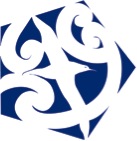Peace Education in the Early Years
Presentations at 2012 TRCC Course – Peace in Education: an early years’ gift to a more peaceful future
Course hosted by the Teachers Refresher Course Committee (TRCC), St Hilda’s Collegiate School, Dunedin. 10-13 April 2012
Initial planning committee: Colleen Lockie, Ki Mansell, Rosalie Ardagh, Kim Tenebaum, Dr Ali Wegner, Gae Thawley, Justine Mason, Jo Togiaso
Kindly supported by: Dr Elspeth Macdonald, Kay Lloyd-Jones, Fiona Ellis, Kirstyn Trainor, Claire MacDonald, Lyn Foote
Resources from presentations at the course are available in PDF and powerpoint format.
Visit http://www.trcc.org.nz/ – Click on to Post Course Resources, then Peace in Education, then RESOURCES in the blue box.
Tell us what resources you find useful Email: education4peace
Te Whàriki
At a colloquium to initiate conversations around peace education in New Zealand held at Otago University in Dunedin on 29-30 October, 2010, participants suggested that Te Whàriki would provide an excellent model for peace for peace education throughout the New Zealand curriculum.
Some of the learning outcomes listed in Te Whariki require children to have access to knowledge, skills, and attitudes pertaining to “a range of strategies for solving conflicts in peaceful ways, and a perception that peaceful ways are best” and that children attain “an increasing ability to take another’s point of view and to empathise with others” (Ministry of Education, 1996, p. 70).
Ministry of Education (MOE) (1996) Early Childhood Curriculum – Te Whàriki. Wellington; Learning Media.
http://www.educate.ece.govt.nz/learning/curriculumAndLearning/TeWhariki.aspx
“This is the first bicultural curriculum statement developed in New Zealand. It contains curriculum specifically for Màori immersion services in early childhood education and establishes, throughout the document as a whole, the bicultural nature of curriculum for all early childhood services.” (p7)
“This curriculum emphasises the critical role of socially and culturally mediated learning and of reciprocal and responsive relationships for children with people, places, and things. Children learn through collaboration with adults and peers, through guided participation and observation of others, as well as through individual exploration and reflection.
This is a curriculum for early childhood care and education in New Zealand. In early childhood education settings, all children should be given the opportunity to develop knowledge and an understanding of the cultural heritages of both partners to Te Tiriti o Waitangi.” (p.9)
Human rights and social justice
Early childhood activity suggestions with links to Te Whāriki.



